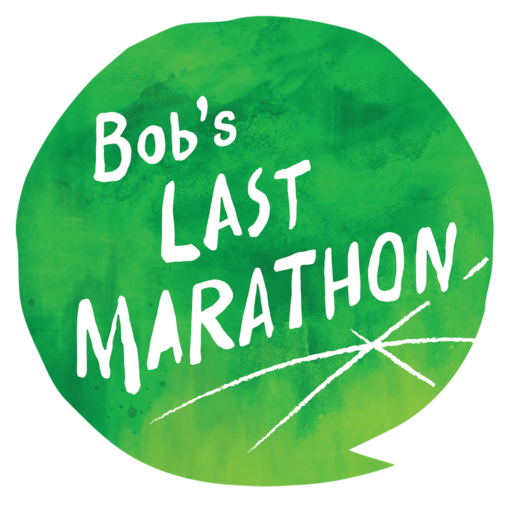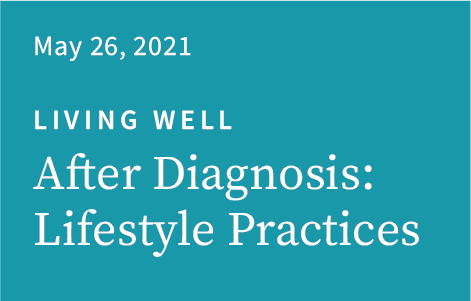Transcript
After Diagnosis: Lifestyle Practices
As a physician specializing in memory disorders including Alzheimer’s disease for over 30 years, I have come to appreciate how many different ways the disease expresses itself, and the many unique ways patients and families experience their journeys. But with all these differences, when families first hear the diagnosis, the spoken or unspoken question is the same: What does the future hold?
I answer that, regardless of the form or the type of neurodegenerative disease your loved one may have—Alzheimer’s disease, vascular dementia, Lewy body dementia (related to Parkinson’s), or frontotemporal dementias, to name a few—you can expect the disease to progress. Over time, these brain diseases erode a person’s life, their ability to think, remember, communicate, and care for themselves. The deterioration is often slow and subtle at first, and people can live a good-quality life for some time, even with memory loss. But it does progress, and abilities that give us independence worsen. A heart-wrenching point of progression arrives when a person no longer recognizes their spouse, children, or other loved ones. Ultimately, the brain degenerates and fails to the point that the person can no longer feed themselves, maintain bladder or bowel continence, talk or walk. When people ask what exactly kills you with Alzheimer’s disease, if it’s not another illness like a heart attack or cancer, it’s usually a complication of basic functions—a urine infection that spreads to the blood, for example, or swallowing difficulties where the food goes down the wrong pipe, leading to aspiration pneumonia.
In terms of life expectancy, rough statistics estimate 7 to 10 years from the time of initial symptoms. But I’ve given up trying to predict for any individual. I’ve diagnosed people when they were still working, and then just two years later they needed round-the-clock nursing care. On the other hand, I’ve seen people golfing and going on family vacations 15 to 20 years after diagnosis.
At diagnosis, people are eager for a prescription, something to slow or stop Alzheimer’s in its tracks. Unfortunately, current treatment offers only modest benefit, and while the research is promising, we aren’t there yet.
While I can’t offer a cure, I strongly emphasize common-sense lifestyle practices that benefit any individual—but are particularly important for people with Alzheimer’s disease or other dementias.
Cardiovascular health is key. High blood pressure, diabetes, and high cholesterol promote vascular disease and afflict many people in the general population, but they’re also associated with Alzheimer’s and most types of dementias. So it’s important to keep in close contact with your primary care physician to manage these risk factors.
On a similar note, exercise is important. There’s been a lot of compelling research about how a sedentary lifestyle sets us up and promotes dementia later in life. Physical inactivity, weight gain and obesity in midlife, and loss of muscle mass in later life are all associated with earlier age of onset and more rapid progression of Alzheimer’s disease and other dementias. Any investment in physical and aerobic activity pays huge dividends in brain health and resilience to dementia. Do what feels right for you. If you are pretty sedentary, it could be spending more time on your feet moving about the house, gardening, or walking in the neighborhood. It could involve more focused activities like group exercise classes, dance, or running. Whatever works for you, the more you get your blood pumping, the better.
Diet can play a key role in the care of Alzheimer’s patients. The Mediterranean or DASH diet is for many of us a manageable way to eat healthy. This diet has plenty of variety, with an emphasis on lots of fresh, colorful vegetables and fruits, whole grains and beans, nuts, healthy fats/oils like extra-virgin olive oil, fish, occasional low-fat meats like chicken, limited dairy, only very occasional red meat, an occasional glass of wine, not more than one a day, and avoiding highly processed foods, refined sugars and carbohydrates, and salty foods. When you apply these guidelines, you’re covering your bases by lowering the risk not only of Alzheimer’s but many other chronic diseases. And very likely you’re slowing the progression of Alzheimer’s. I’m sometimes asked about the effects of other diets like vegan, keto, and paleo on Alzheimer’s disease and I say the data aren’t there yet to say one is better than another—none has proved any more beneficial than the Mediterranean-type diet.
Do not underestimate the importance of sleep. Recently, there’s been lots of fascinating research showing that harmful amyloid proteins and other metabolic waste products of the brain are cleared during deeper stages of sleep. Getting enough deep sleep stage can be a challenge for older people in general and those with Alzheimer’s disease in particular, whose sleep tends to be more fragmented. Sleep specialists, however, offer many recommendations to improve sleep hygiene.
Consider your sleep environment. Make sure your bedroom is quiet, dark, and cool enough for comfortable sleep; also, avoid the stimulation of TV, radio, music, and blue light–emitting screens right before sleep. Get your body in the habit of a natural sleep rhythm by adjusting your sleep schedule—try to go to bed around the same time every night and get up at about the same time every morning. Get your body in the mood for sleep. This means avoiding taxing situations, or in the case of caregivers, stressful tasks and work, before bedtime to let our minds calm down. It also means not overeating near bedtime, relegating caffeine to early in the day, and avoiding nightcaps since alcohol does disrupt sleep. Many people take antihistamines like diphenhydramine, found in Tylenol PM and other over-the-counter sleep medicines. While they may make you sleepy, they have side effects on other brain chemicals that worsen memory and concentration abilities and should be avoided.
Stress, mood, and anxiety: This is a complicated area. There’s evidence that people who tend to experience more psychological distress in their day-to-day lives have a higher risk of developing Alzheimer’s disease, and have a faster rate of progression once they do. We all have stress in our lives. Regardless of whether the amount of stress is normal or excessive, it’s how we manage it that is important. Some stress is actually stimulating to the brain. Too much or mismanaged stress is destructive. Chronic stress has a wear-and-tear effect on the connections of the brain, making them more vulnerable to diseases like Alzheimer’s. Time for relaxation, practicing meditation, mindfulness, yoga, tai chi, walks in the neighborhood, or just enjoyment of leisure activities should be built into the day. But when stress becomes overwhelming, or when depression and anxiety take hold, it’s important to get professional help with either counseling or medicine or both. I’m speaking here of the caregiver as well.
Cognitive stimulation is important. I’m often asked about specific brain exercises to improve memory or other cognitive abilities. I don’t think the data on brain training are good enough yet to recommend any specific exercises. However, we do know that lack of mental stimulation may be harmful by making the brain less able to compensate for the disease changes that happen in the Alzheimer’s brain. It’s helpful to stay intellectually engaged with mind-stimulating activities. Consider ways to keep the mind alive and working. Depending on capability, this might involve volunteer work, promoting new experiences in travel, day trips, museum visits, or just reading. Choose engaging TV shows, do crossword puzzles and word searches, and play games that involve strategy.
Social interaction can be seen as a form of cognitive stimulation. There’s nothing more stimulating to the brain than exchanging ideas and emotions with other people. We are, after all, social creatures: Our brains are hardwired for relationships and thrive on interaction. But as people age they may retire from work and lose those built-in workplace interactions. Friends and family members die. Arthritis and other physical ailments may make it harder to get out of the house and socialize. As their worlds shrink, people lose the mental stimulation of being with other people, hearing about new things and communicating their own ideas. Isolation can also lead to loneliness and depression, and these conditions are toxic to the brain.
On a related note, we’re starting to recognize the role of hearing loss in cognitive decline. If you think about it, our ears are perhaps even more important than our eyes as a conduit to the world, especially the social world. With hearing loss, less information is reaching the brain, making it harder to register in memory. Older people who develop hearing impairments have more difficulty understanding and remembering, and may become more withdrawn. It’s wise to get tested and get hearing aids.
Cardiovascular health, diet, cognitive stimulation, sleep, and social interaction. They’re important areas of consideration for both the person suffering cognitive decline and the caregiver, to help improve quality of life and reduce the risk of disease. These lifestyle improvements do double duty by slowing disease progression while helping to keep the healthy mind healthy for as long as possible.
Steven E. Arnold, MD
Professor of Neurology
Harvard Medical School
Managing Director
Interdisciplinary Brain Center, Massachusetts General Hospital
www.actru.org

